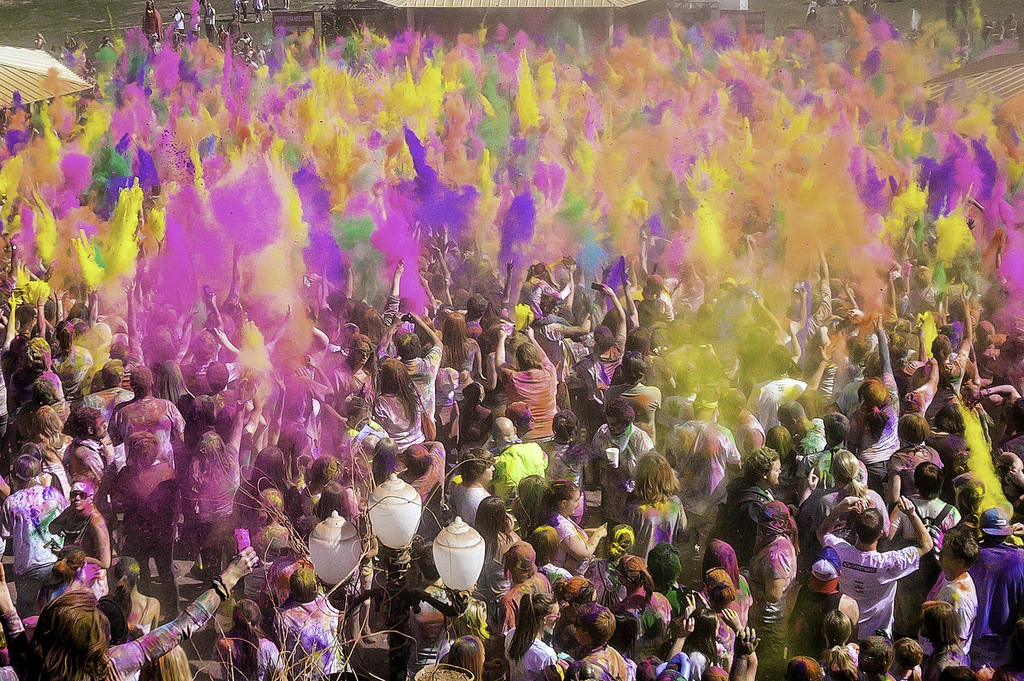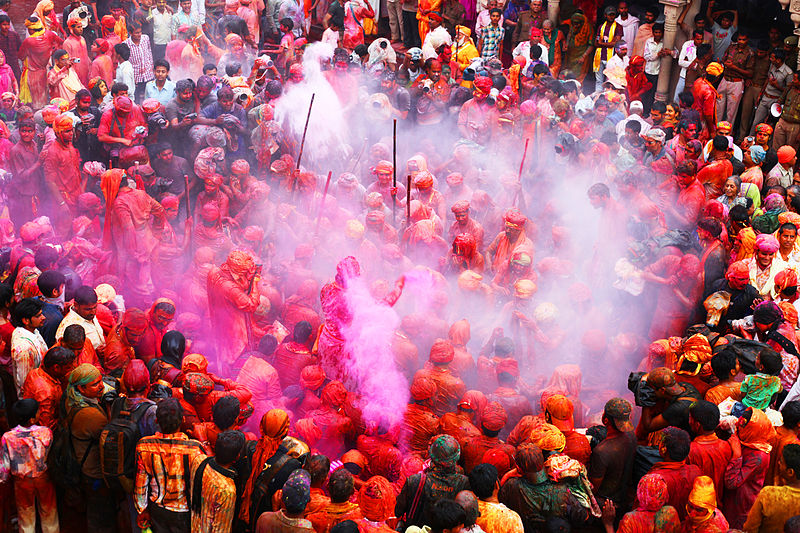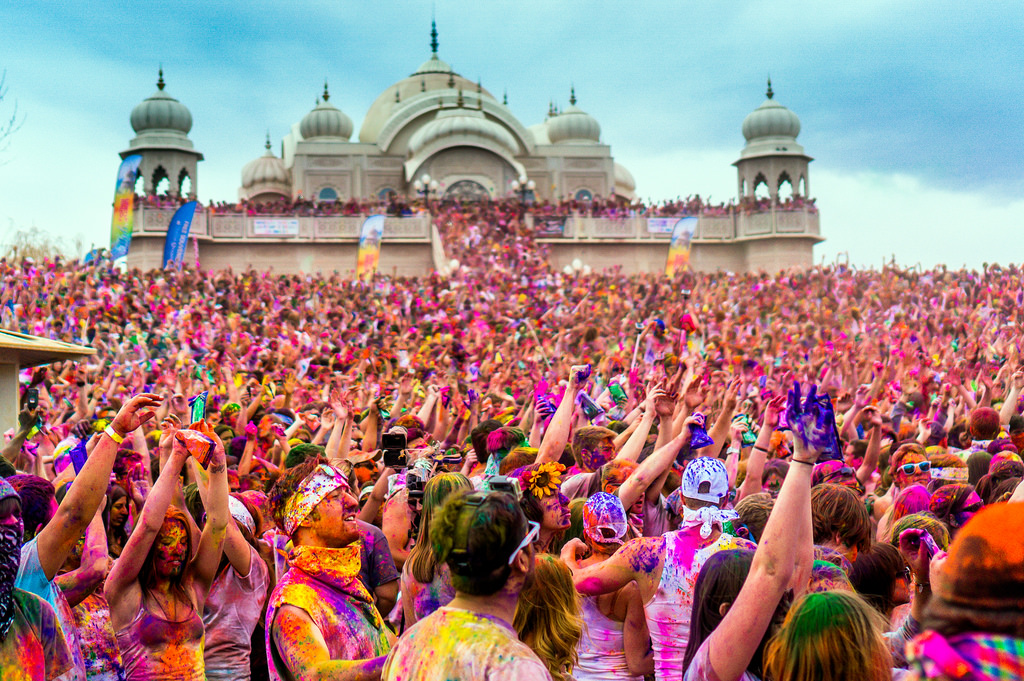
Holi, the spring festival of colors that will be celebrated on Sunday, March 12, is one of India’s most anticipated events. Observed annually on the last full moon day of the Hindu calendar month of Phalguna, the holiday entails taking to the streets early in the morning to douse strangers and friend alike, with colored powder and water. However, unlike the copycat color runs in the US, revelers do not have to race five or ten kilometers to participate!
As with all Indian festivals, there are numerous myths attached to the origin of Holi. The most popular one credits it to Hiranyakashipu, the king of demons, and his son Prahlada. According to the legend, the king was unhappy with his son’s devotion to Lord Vishnu, the protector of humanity. When all efforts to dissuade him failed, Hiranyakashipu turned to his sister Holika for help.

The demon goddess, who was born with the power to resist heat, invited Prahlada to join her inside a burning fire. However, thanks to divine protection from Lord Vishnu, the young boy emerged unscathed, while the ‘fireproof’ Holika burned to ashes. The locals celebrated the victory of good over evil with colorful powder, and a fun tradition was born. To this day, Hindus everywhere cleanse the air of evil spirits by igniting a bonfire the night before Holi.
In the northern Indian state of Uttar Pradesh, Holi celebrates the love between the mischievous Hindu deity Krishna and his beloved Radhika. Since eternal devotion cannot be commemorated in a single day, the residents of Mathura, where Krishna was born, celebrate the festival for an entire month, with different events scheduled each day. The highlight is the Lathmar, or stick, Holi, which is celebrated a few days before the main event. On this day, women stage a mock battle to prevent men from placing a flag atop Radhika’s temple. The women 'attack' the men with bamboo sticks, while the men fight back with the only weapon at their disposal — colored powder!

Though the reason for the origin may differ, the spirit of this colorful festival that marks the beginning of spring is the same. It is a day when people young and old shed their worries and inhibitions and come together to rejoice.
The celebrations usually end by midday, after which residents head home or to a nearby ocean or river for a quick rinse. Then it’s time for a scrumptious meal and a well-deserved siesta!
Resources: wikipedia.org, goindia.about.com